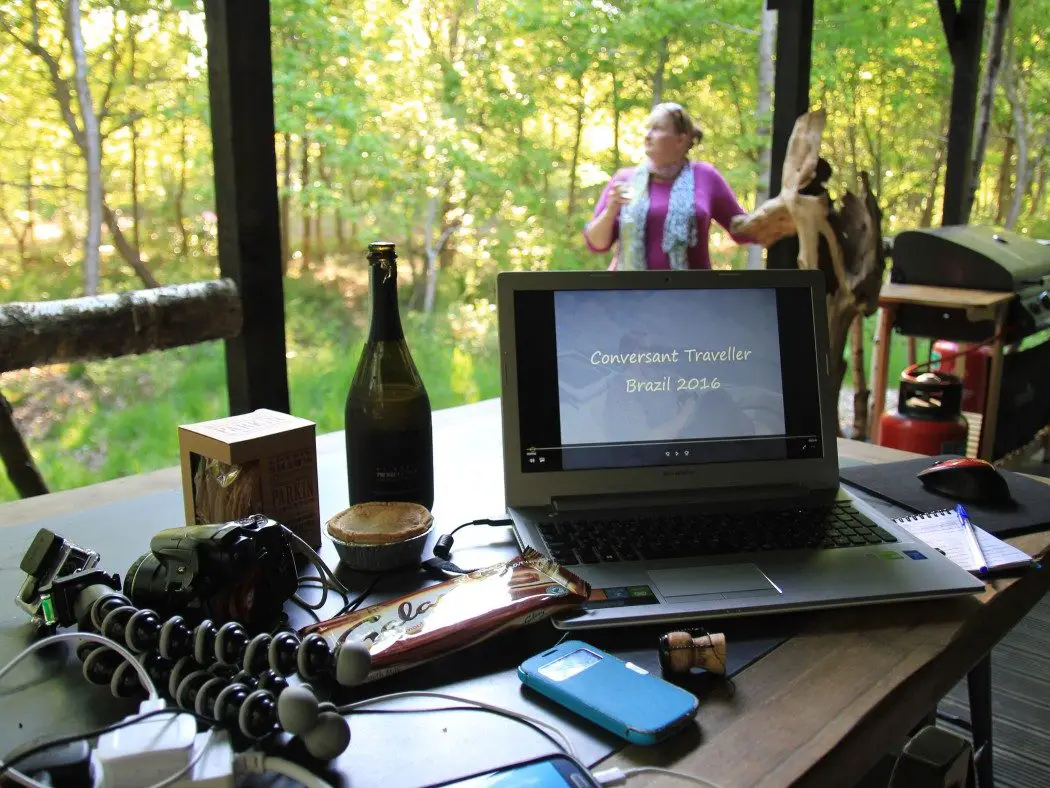Seven years ago today I started a blog. I’d just come back from a nomadic trip camping out in the Sahara where I rode a camel Lawrence-of-Arabia style into the sunset, and swapped stories with fellow travellers around the campfire. I couldn’t wait to share my experience with friends and family back home, and give them some ideas for their next holiday.
Not long after, someone suggested that blogging would give me an outlet for my creative writing as well as a platform where those close to me could follow my adventures. Thus, Conversant Traveller was born, and proved to be an immensely enjoyable hobby for a couple of years. But then something incredible happened. I was contacted by a hotel chain and tourist board in Switzerland, asking if I’d like to go on a fully hosted trip to showcase their region to my readers. In this moment I realised that the blog could become a fully-functioning business, and began taking the steps to become the full-time blogger and freelance travel writer that I am today.
Many bloggers dream of quitting jobs to travel the world, but most fail as they haven’t built up solid business foundations before they leap into the unknown. Yet a lot do succeed, because they’ve put the work in and have a tried and tested strategy for blog monetisation. I wish someone had been there at the beginning to open my eyes to the possibilities and teach me from day one how to steer my blog towards commercial viability. Which is why I’m spilling the beans here to help you get it right from the start. It’s not difficult, it just takes time, method and determination.
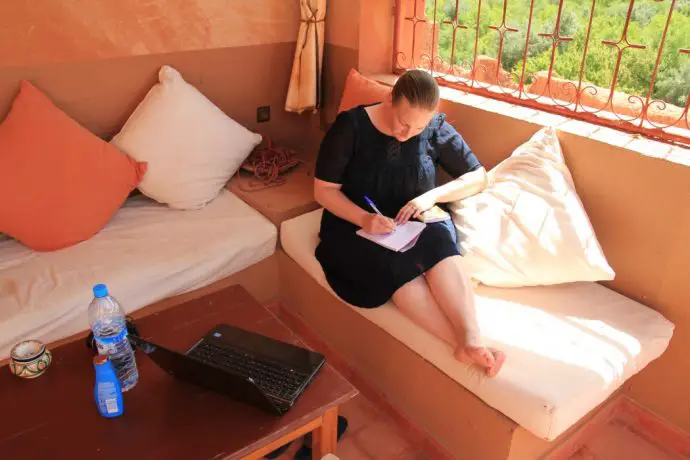
If you’re considering turning your blog into a business, this is what you should focus on:
1. SEO
SEO is king! And something I regret not knowing about when I started out. Search Engine Optimisation is basically using keywords to get your page to rank higher in online searches. You have to do a bit of keyword research to work out what phrases can outrank your competition, but the time and effort pays off, and there’s no better feeling than seeing your article appear at the top of page one!
Really, without SEO you won’t get anywhere. This is what enables people to find your blog online, and actually it’s quite fun trying to figure out what they might type into searches. The trick is using multiple keywords and phrases in a post to cover all possibilities, but don’t overdo it, neither your viewers nor the search engine will thank you for it! It’s all about striking the right balance, and at the end of the day, having a well-written informative post that answers the user’s question is the most important thing to remember.

2. Affiliate Marketing
Affiliate marketing is all about making sales through embedded links on a web page. This might be for an online gear retailer, a hotel booking platform or an attraction ticket aggregate. For each sale made by someone who has clicked on one of these links, you earn commission from the provider. Once it’s been set up correctly, affiliate marketing is the best way of making passive income and becoming a successful travel influencer with long-term business potential.
SEO and affiliate marketing go hand in hand, yet it’s not all plain sailing. Making sales on your top ranking pages only works if the content matches what the reader is looking for, and solves a problem for them. You see it’s all about user intent. If they’ve landed on a page looking for the best time to visit a destination, they’re unlikely to be in a purchasing frame of mind, they’re simply after information at this stage. Yet if they arrive on an article in search of the best hotel in a destination, a sale is far more probable because booking accommodation is their intention.
I only put affiliate links in top performing posts, as this is where the traffic is and the chances of someone clicking and booking through a link is much greater. Most of my affiliate income comes through hotel bookings since a big focus of my site is luxury places to stay.
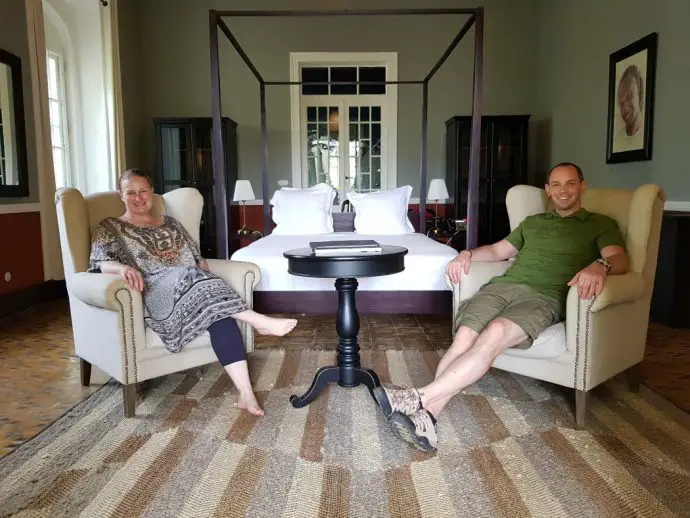
3. Sponsorship Opportunities
Sometimes brands will reach out for sponsorship opportunities on your blog, often in the form of an article with a link back to their website. You should only accept these offers if the product or service is fully aligned with your brand, you know it’s something your readers are going to love, and of course you need to disclose the partnership to be 100% transparent in your endorsement.
This type of opportunity will come once you have established a reasonable DA (domain authority), which comes over time though naturally gaining back links from other authoritative websites. To do this you just need to write good content, that will be linked to by those who feel it is a useful resource.

5. Advertising
This is where you have strategically placed third party ads on your site, and earn a small commission each time someone clicks on them. The ads displayed are usually based on the viewer’s own web activity, so tend to be more relevant than random. You can play around with ad location and do tests to see which placements work best, but the whole thing is a case of trial and error.
I personally hate sites that are plastered in ads, and resisted displaying them on this blog until a year ago. It started as a trial, but has provided a steady monthly income so I’ve decided to keep the ads for now. Do note that it’s only worth setting up ads if you have decent monthly traffic, as only a tiny percentage of users actually click on them. I waited until I had 23,000 visitors per month, but feel free to do it sooner, as you might have a handful of top performing posts that will see a good click through rate. 80% of my ad income (and affiliate income!) comes from just 10 of my high ranking articles.
Some companies might ask for banner adverts, which are individual ads placed in a sidebar or within a blog post. This works well if it’s a business that relates well to your content, or is a company that you’ve had a previous working relationship with. Some will design their own banners, while others will ask you to do it, for a fee of course. Don’t worry if you’re not a designer, it’s really easy to create smart and simple graphics using an online ad creator. You can even set up templates for quick access and consistent site design.
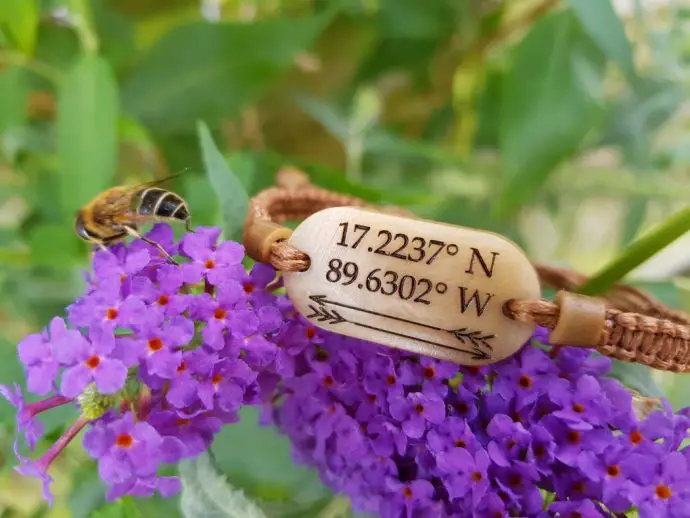
4. Hosted Trips
For me, it all started off with press trips, hosted stays and complimentary products. Whilst this wasn’t actual money in the bank, it saved me a small fortune on accommodation and activity costs, flights and gear. Being invited on media visits is a huge confidence booster too, especially when you’re in the early stages of blogging, and knowing total strangers valued my work gave me the incentive to progress and grow the business.
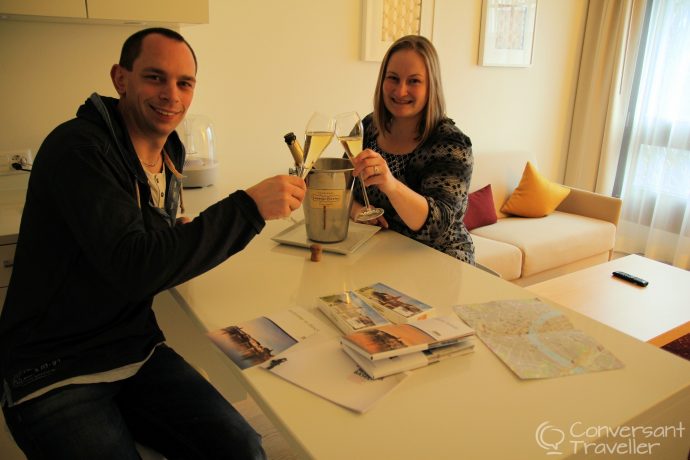
I now do fewer hosted trips because I’m focusing more on monetisation and independence, plus travel and accommodation providers need our money more than ever right now and for me it would feel wrong to ask for complimentary stays just at the moment. Yet when things settle down, do consider reaching out to providers if you think you have something serious to offer them in return for being hosted.
Start small, with something like a city pass that will allow you to visit several attractions in the area, and gradually work your way up. Make sure your offer is super relevant to the provider and do a bit of research about current marketing drives and themes that may be happening in the area you will be visiting. Personally, I wouldn’t bother with tourist boards as they’re notoriously difficult nuts to crack, and instead focus on smaller, independent businesses that would be a good fit for your blog. This is where I’ve had 99% of my success.
5. Diversify Your Income
Diversifying your income really is key to success when it comes to blogging. You never know when an income stream may fizzle out, for example if an affiliate partner ceases operation, or your site traffic falls (e.g. during the 2020 pandemic!) resulting in your ad revenue drying up.
It’s never good to have all your eggs in the same basket no matter what niche you’re in, so do consider branching out if you can. For example, I set my self up as a freelance copywriter last year, writing for several different industries beyond travel. At the moment my income is split 50/50 between blogging and freelance, and it gives me a sense of stability in what is currently a pretty turbulent world.
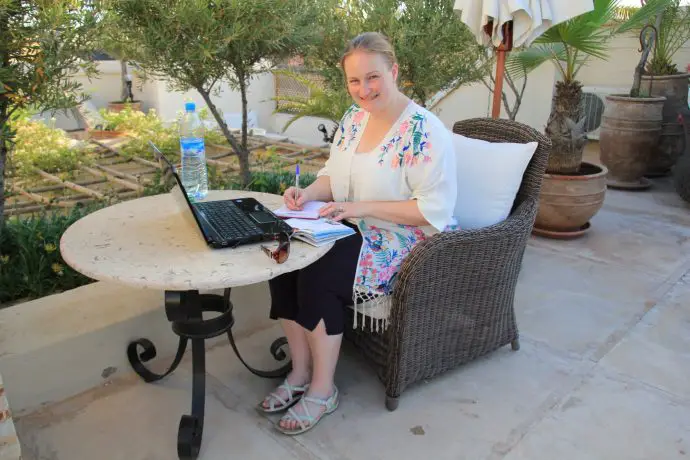
The world of travel blogging will emerge from the difficulties of 2020 a slightly different beast, one that is yet to be fully determined. But don’t worry, if you want to turn travel blogging into a lucrative career you still can. You just need to arm yourselves with the tools you need to succeed, from learning all about SEO and affiliate marketing, to harnessing sponsorship opportunities. Once you’ve got all that nailed, the world really is your oyster.
The pandemic has decimated the travel industry, and along with it, several bloggers who have given up on their dream. This means there will be less influencer competition when things are back on track, so now is the time to get your ducks in a row, put effort into building your site, and get ready to reap the rewards later. Good luck!

